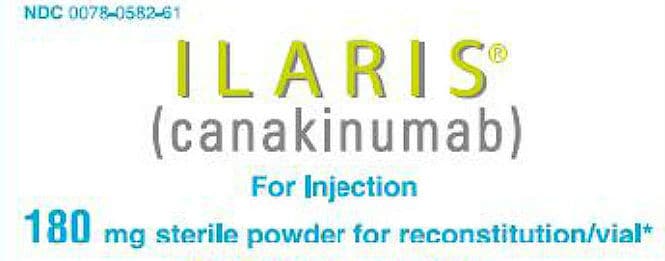Harvard researchers have found that the drug Canakinumab, which targets inflammation without impacting cholesterol, significantly cuts a person’s risk from recurrent heart attacks, strokes, and cardiovascular death. It also seems to have cut the number of cancer deaths in half among study participants.
The trial study found that the need for expensive interventions, such as bypass surgery, cut by more than 30 percent.
Said study lead Paul M. Ridker: “These findings represent the end game of more than two decades of research, stemming from a critical observation: Half of heart attacks occur in people who do not have high cholesterol…. For the first time, we’ve been able to definitively show that lowering inflammation independent of cholesterol reduces cardiovascular risk. This has far-reaching implications. It tells us that by leveraging an entirely new way to treat patients — targeting inflammation — we may be able to significantly improve outcomes for certain very high-risk populations.”
Ridker and colleagues are hailing it as the biggest advance in heart disease treatment since the introduction of statins.
The dramatic results come from a clinical trial that encompassed 25 years of cardiovascular research. The Canakinumab Anti-inflammatory Thrombosis Outcomes Study (CANTOS) examined whether cutting inflammation in people who’ve already had one heart attack could lower the chances of a future cardiovascular event.
Trial participants were given normal, aggressive care including cholesterol-lowering statins. Participants were further treated with 50, 150, or 300 mg of canakinumab (or a placebo for the control group), which was injected under their skin every three months. This went on for four years.
Said Ridker: “In my lifetime, I’ve gotten to see three broad eras of preventative cardiology. In the first, we recognized the importance of diet, exercise, and smoking cessation. In the second, we saw the tremendous value of lipid-lowering drugs such as statins. Now, we’re cracking the door open on the third era…. This is very exciting.”
Canakinumab is a so-called human monoclonal antibody. In this case it neutralizes an imflammatory chemical which if over-expressed in the body ups inflammation throughout the body. The researchers also noted that cancer deaths were cut in half by canakinumab, leading to what they describe as a nonsignificant reduction in death from any cause in the study.
Overall the researchers reported a 15 percent drop in the risk of a cardiovascular event, like a heart attack or stroke, in patients receiving either the 150- or 300-mg dose (no effect was observed for the lower 50-mg dose.) Expensive interventions like bypass surgery and angioplasty fell by more than 30 percent. These reductions are above the reduction in risk seen after taking statins alone.

